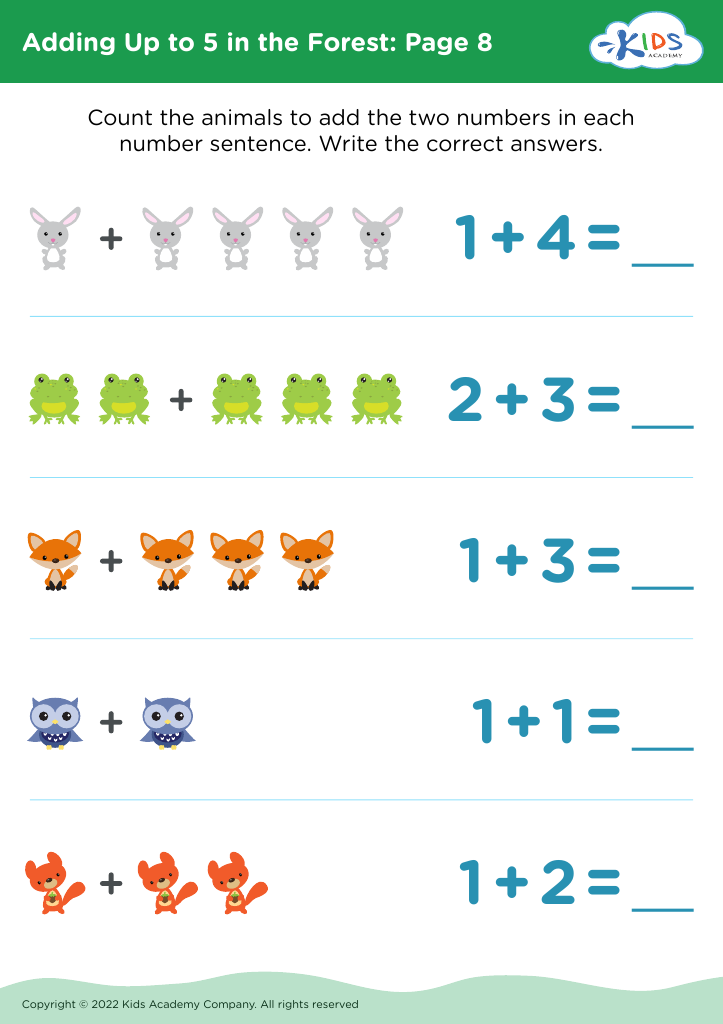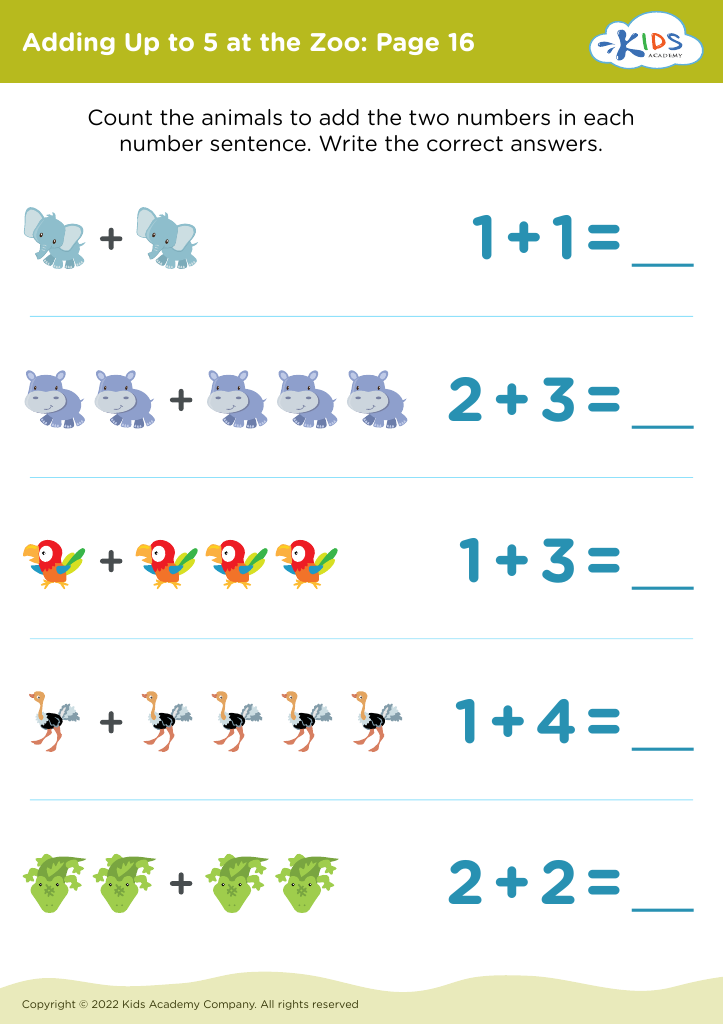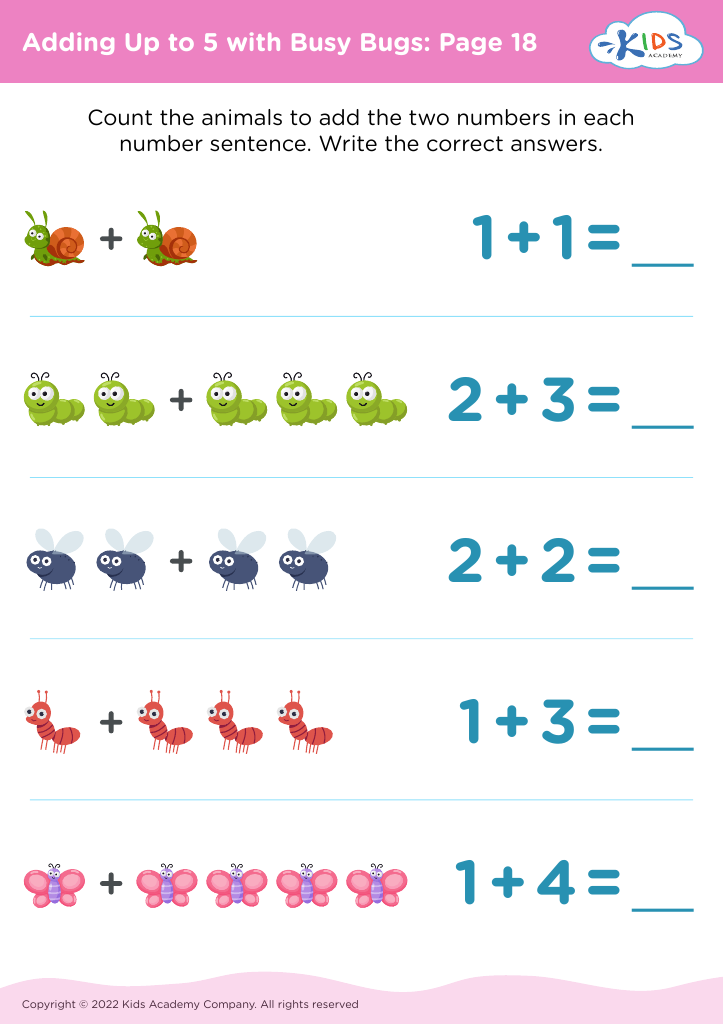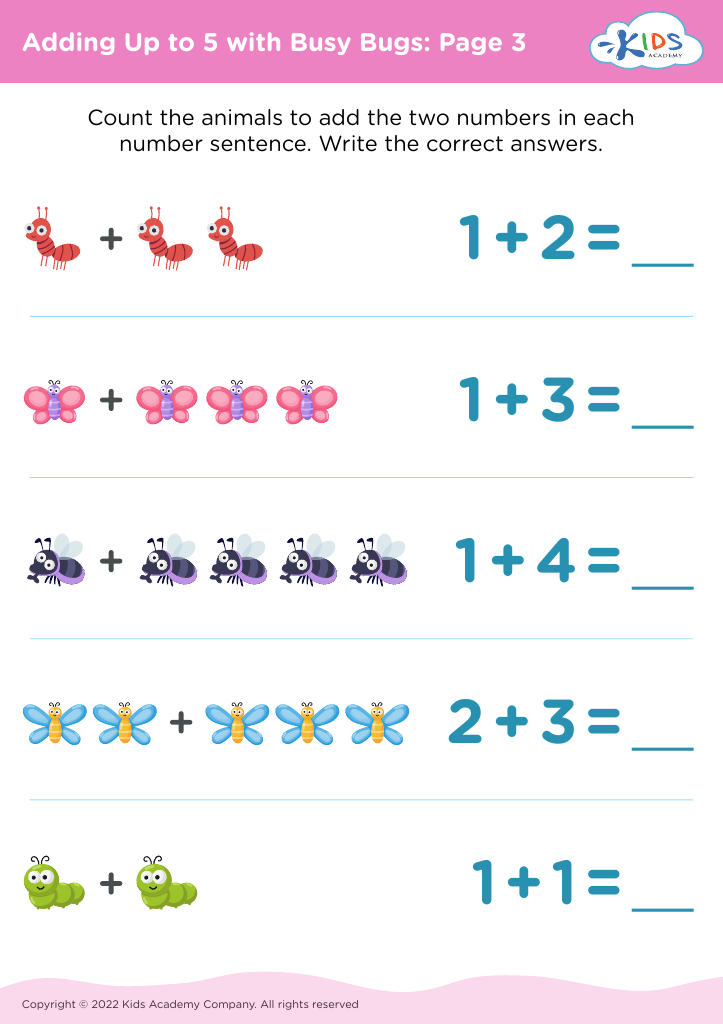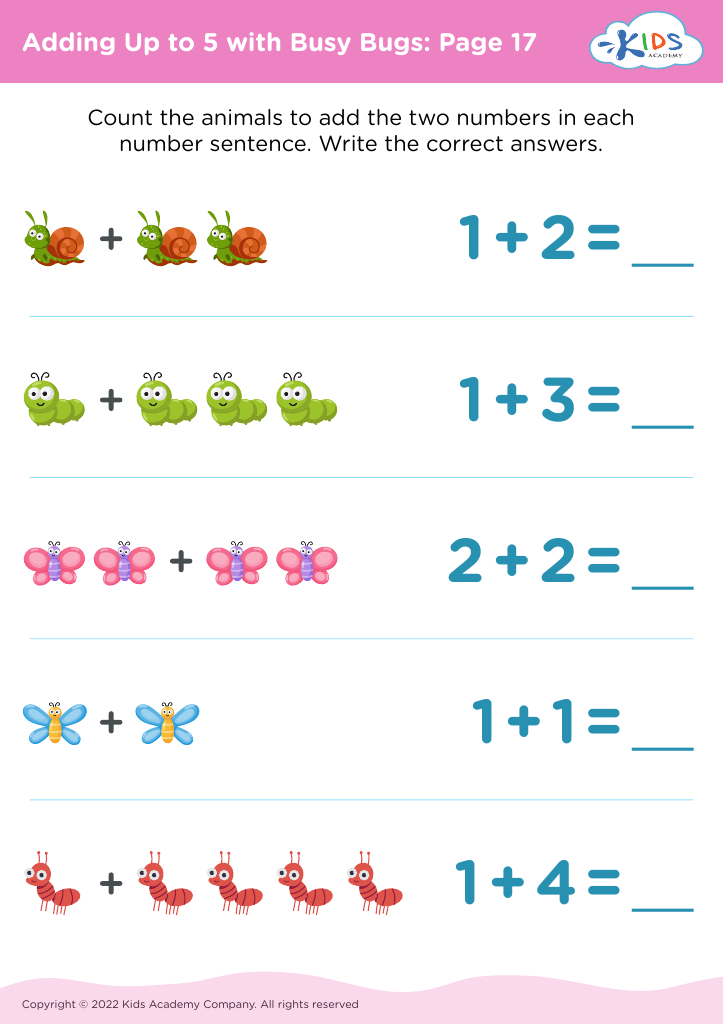Developing Concentration Addition Worksheets for Ages 5-6
5 filtered results
-
From - To
Enhance your child's math skills and focus with our Developing Concentration Addition Worksheets, specially designed for ages 5-6. These engaging worksheets help young learners practice fundamental addition concepts while improving their concentration and attention span. Each worksheet features colorful illustrations and fun activities that make learning enjoyable and interactive. As children work through various addition problems, they build not only their math abilities but also essential cognitive skills. Perfect for parents and educators, these resources can be incorporated into daily practice or as part of a comprehensive curriculum. Foster a love for math while nurturing your child's concentration with our expertly crafted worksheets!
Developing concentration in addition skills for children aged 5-6 is essential for several reasons. First, at this age, children are in a critical period of cognitive development where foundational math skills are established. By focusing on concentration, they learn to focus their attention, solve numerical problems, and enhance their overall academic performance. The ability to concentrate allows children to overcome distractions and apply strategies to think through problems systematically.
Second, mastering addition expands their confidence in math. It builds a positive attitude towards learning and encourages a growth mindset. Early successes in this area can instill a love for mathematics, making future learning more engaging and effective.
Moreover, strengthened concentration skills promote better listening and comprehension in various learning environments, fostering improved classroom behavior. Parents and teachers can work together to create engaging, concentrated learning experiences through games, storytelling, or collaborative activities, which not only enhance addition competencies but also improve social skills.
Finally, these foundational math skills have practical applications in everyday life. Children learn the importance of numbers in activities like sharing snacks or counting toys, thereby making math relatable and enjoyable. This early investment in concentration and addition lays the pathway for lifelong learning.

